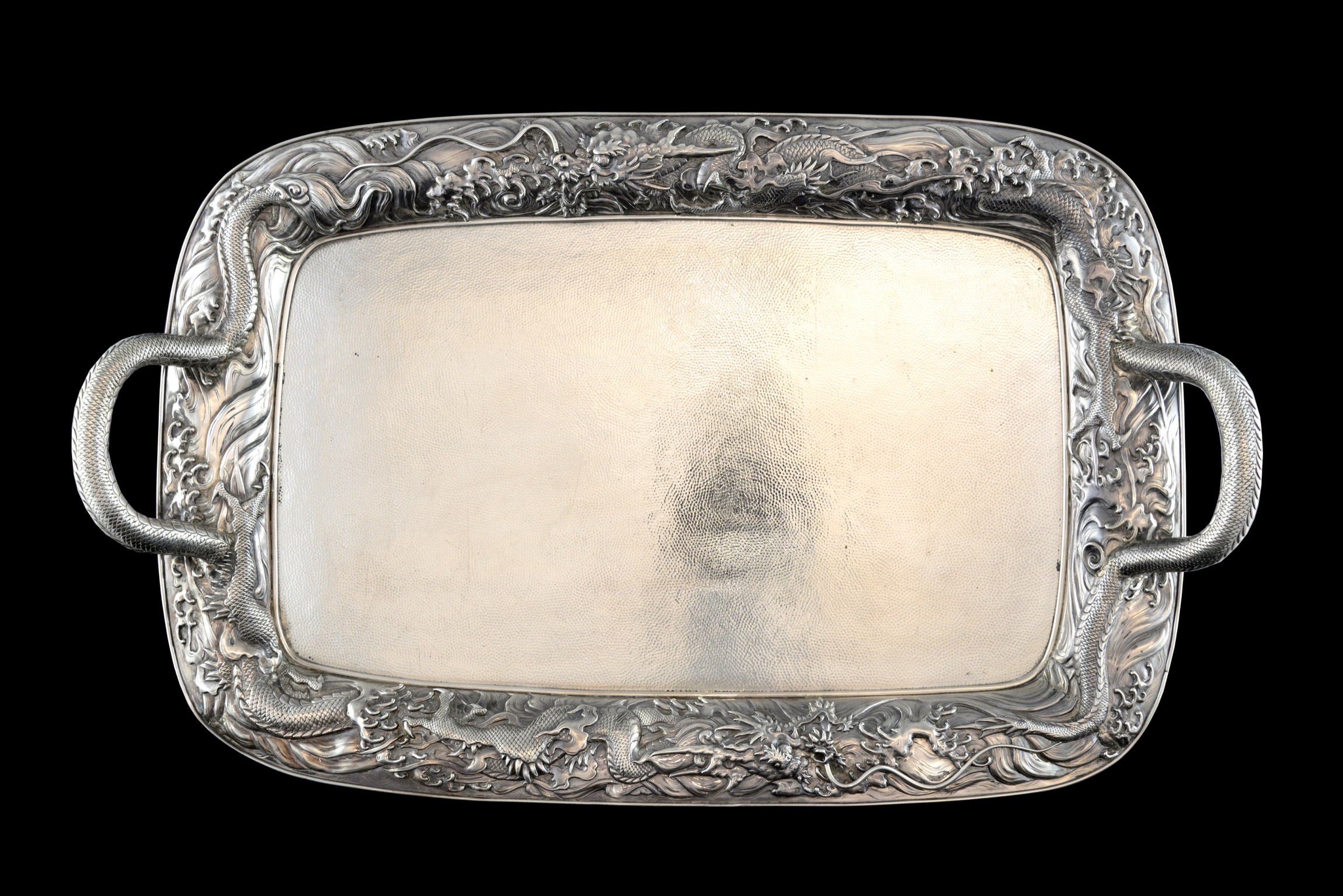Jade and soapstone attract interest at Ewbank’s
A sale of a private collection of some 70 19th Century soapstone sculptures and items of jade are being offered in a sale of Asian and Eastern art at Ewbank’s in Surrey on November 5th.
Soapstone, or soaprock as it is also known, correctly called steatite, is a relatively soft rock created by heat in the earth’s crust millions of years ago. At some unknown point in the past, Chinese artist craftsmen realised it could be carved far more easily than other rocks, with the result that over the centuries, wonderfully elaborate and desirable sculptures have amazed and delighted collectors.
Aside from their skilful carving and intrinsic beauty, 19th century soapstone sculptures, effectively imitations of carved jade, are among the more affordable oriental antiques. One of the most valuable pieces in the sale is a carving of Shou Lao, the God of Longevity in Chinese mythology, which is estimated at £150-250. Depicted with bowed head and standing on a rocky base, the 39.5cm figure holds a staff and a peach, a symbol of immortality.
Still more elaborate is a carving of a pagoda set in a garden of exotic trees and shrubs, also estimated at £150-250, while a carving of a figure surrounded by foliage emerging from which are birds, toads and other creatures appears to have been created from a soapstone boulder set on a similarly elaborate base. It is estimated at £120-180.
Contrasting with the soapstone, and from another vendor, is a darker, heavier figure of a man carrying a basket of flowers and a bouquet carved from a denser stone. It stands 98cms high and is estimated at £500-800.
There is no substitute for the real thing, however, and fireworks are expected among the section of the sale devoted to jade, a material considered more precious than gold among Chinese collectors.
 Pick of the entries received so far is a white jade carving of a mother dog and her pup, their front paws and tails entwined in a most endearing pose. Measuring just five centimetres long, it is estimated at £2,000-3,000, while a spinach jade shallow brush washer carved with three dragons on a carved hardwood stand, is estimated at £600-800.
Pick of the entries received so far is a white jade carving of a mother dog and her pup, their front paws and tails entwined in a most endearing pose. Measuring just five centimetres long, it is estimated at £2,000-3,000, while a spinach jade shallow brush washer carved with three dragons on a carved hardwood stand, is estimated at £600-800.
China was making translucent, paper thin white porcelain, the principal content of which is a pulverised mineral called kaolin, centuries before the secret ingredients were discovered in the West.
 The sale includes a set of 28 porcelain wall tiles depicting figures at various pursuits in landscape settings, capable of making a panel measuring 50 x 92cm. They are estimated at £600-1,000.
The sale includes a set of 28 porcelain wall tiles depicting figures at various pursuits in landscape settings, capable of making a panel measuring 50 x 92cm. They are estimated at £600-1,000.
Chinese cloisonné takes its name from the enamel decoration in tiny decorative compartments call cloissons, formed by silver or gold wires fused to the body of the object being decorated.
An early entry to the sale is an unusual glass-sided marriage lantern, so called because it comprises two square vase-shaped shades positioned side by side and united by a winged beast, which stands on the head of another. The lantern is estimated at £1,000-2,000.
Interestingly, the lantern’s patterns are echoed on a charming Chinese summer robe with double sleeves, the pink gauze panels and trim of which are embroidered with floral sprigs and butterflies. Brought back from China by the vendor’s grandparents who lived there in the early 1900s, the robe is estimated at £300-500.
 Chinese and Japanese silver, once underrated by buyers, is now highly sought after, particularly by collectors and dealers looking to repatriate pieces to their country of origin. An oblong tray, the handles and surrounding border of which is decorated with moulded figures of dragons’ tails amid swirling clouds, is Japanese and dates from the Meiji period, roughly equivalent to the Victorian era. It weights 102oz (3172g) and is estimated at £1,200-1,800.
Chinese and Japanese silver, once underrated by buyers, is now highly sought after, particularly by collectors and dealers looking to repatriate pieces to their country of origin. An oblong tray, the handles and surrounding border of which is decorated with moulded figures of dragons’ tails amid swirling clouds, is Japanese and dates from the Meiji period, roughly equivalent to the Victorian era. It weights 102oz (3172g) and is estimated at £1,200-1,800.
From India are two 19th century miniature paintings on ivory, one in an elaborately carved hardwood frame, depicting a couple seated on a carpet playing the ancient game of Pachisi, attended by three maids, the other a man and his admirer seated on a golden carpet, the man smoking a hookah and being served by an attendant from a table of food and drink. The latter is contained in a cushion frame and presentation case with strut support, and each painting is estimated at £200-300.

